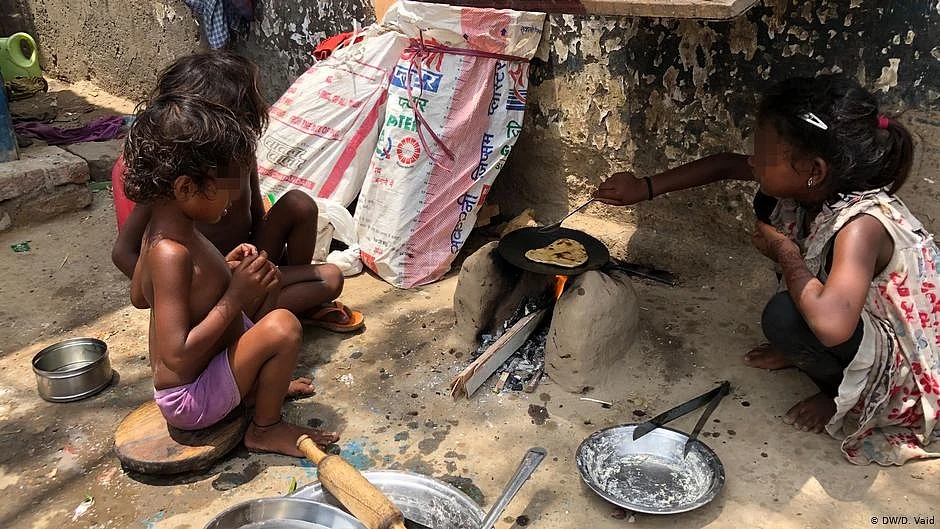Freedom from hunger is ultimate fundamental right; any nation unable to ensure this is a failed State
Faced with ignominy of being ranked behind neighbouring nations in 2021 Global Hunger Index, Modi govt has challenged conclusions drawn by publishers of World Hunger Report, reflecting its frustration

It is a classic case of killing the messenger when the content of the message is unpalatable. Faced with the ignominy of being ranked behind Bangladesh, Pakistan, Sri Lanka and Nepal in the 2021 Global Hunger Index at 101 out of a worst possible 116, the Modi government has challenged the conclusions drawn by the publishers of the World Hunger Report, saying it is ‘devoid of ground reality and facts’. The government’s embarrassment is understandable, but that does not take away the seriousness of the country’s situation.
That the government has to contest the methodology used by the UN Food and Agriculture Organisation (FAO), the agency whose findings the index compilers have drawn from in arriving at their conclusions, shows the extent of its frustration. It could not have challenged the index itself as it is based on criteria that are not open to challenge, but questioned the methodology used by FAO in calculating hunger and poverty.
In this context, it is to be noted that when the FAO published the report, the government did not contest it. But when the findings of the report were used to construct the hunger index, it suddenly woke up, because the index brought the problem into sharp focus.
Most curiously, the effort of the government to deal with the highly damaging conclusion of the index is not in questioning India’s rank, which it cannot do with any amount of success, but in questioning the ranking of the neighbouring countries ahead of India. That by itself should show how slippery is the government’s ground in defending its performance.
The Modi government is challenging the conclusion of the FAO report, titled ‘The State of Food Security and Nutrition in the World 2021’, that other four countries of this region — Afghanistan, Bangladesh, Nepal and Sri Lanka – have succeeded in improving their position on the indicator ‘proportion of undernourished population’ by 4.3 per cent, 3.3 per cent, 1.3 per cent and 0.8 per cent points respectively during the period 2018-20, at the height of the Covid pandemic.
The pertinent question then is, how it will help the situation of an estimated 190 million poor people if it is established that people in the neighbouring countries are poorer. According to FAO’s own estimates, of the total population of 1.3 billion people, 190.7 million people are undernourished and 25 per cent of the children experience hunger.
On top of that, the fragility of India’s food system is further demonstrated by the fact that about 90 per cent of the total workforce is from the informal sector, which encompasses agricultural, migrant, and other workers who entirely depend on daily wages for livelihood.
It is doubly embarrassing that the rankings were published on a day when Prime Minister Modi announced plans to make India ‘the biggest military power in the world’. In a video address at an event to dedicate the seven new defence companies to the nation on the occasion of Vijayadashami, a controversial decision by itself as it entailed the disbanding of the 200-year old Ordnance Factory Board, Modi declared that the goal of his Atmanirbhar Bharat campaign was to make India ‘the world’s biggest military power on its own’ and develop a modern defence industrial base.
The situation of the 200 million extremely poor Indians raises the question as to why India needs to be a super military power when the country cannot provide enough food to feed its hungry. The most fundamental of all freedoms is the freedom from hunger and all other freedoms become meaningless unless this one is guaranteed.
A nation must first be worth defending before allocating all resources for its defence and as far as these people are concerned, a bigger priority is to feed them adequately a task in which the rulers of the country have failed so far.
This is more relevant today than ever before as the government celebrates the much-hyped ‘Azadi Ka Amrit Mahotsav’ to celebrate and commemorate 75 years of India’s freedom.
A few notches down or up might make a difference to the ego of the rulers, but more than the methodologies and the numbers, what matters is the experience on the ground for the people. And that experience has not been a happy one for a sizeable section of the Indian people.
This should be the cardinal thought on the occasion of the 75th year of Indian independence, nothing else.
(IPA Service)
Views are personal
Follow us on: Facebook, Twitter, Google News, Instagram
Join our official telegram channel (@nationalherald) and stay updated with the latest headlines
